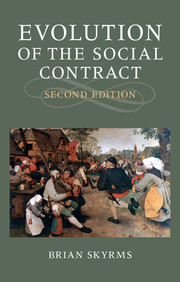3 - Mutual aid
Published online by Cambridge University Press: 05 November 2014
Summary
ON June 18, 1862, Karl Marx wrote to Friedrich Engels, “It is remarkable how Darwin has discerned anew among beasts and plants his English society… It is Hobbes’s bellum omnium contra omnes.” Marx is not quite fair to Darwin. But in 1888, in an essay entitled “The Struggle for Existence and Its Bearing upon Man,” Thomas Henry Huxley wrote:
The weakest and the stupidest went to the wall, while the toughest and the shrewdest, those who were best fitted to cope with their circumstances, but not the best in any other way, survived. Life was a continuous free fight, and beyond the limited and temporary relations of the family, the Hobbesian war of each against all was the normal state of existence.
Huxley’s portrayal of “nature red in tooth and claw” had a great popular impact, and contributed to paving the way for the social Darwinism that he himself detested. The great anarchist Prince Petr Kropotkin was moved to publish an extended rebuttal in the same periodical, Nineteenth Century, that had carried Huxley’s essay. Kropotkin’s articles, which appeared over a period from 1890 to 1896, were collected in a book entitled Mutual Aid: A Factor of Evolution. The introduction begins:
Two aspects of animal life impressed me most during my youth in Eastern Siberia and Northern Manchuria.
- Type
- Chapter
- Information
- Evolution of the Social Contract , pp. 43 - 63Publisher: Cambridge University PressPrint publication year: 2014



